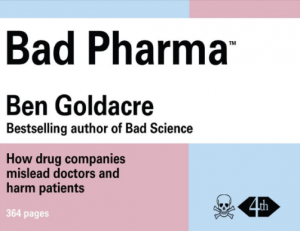 What shall we do about all the refugees? I want to make three points about the present situation, to provide some background context for how a Christian might understand what is happening.
What shall we do about all the refugees? I want to make three points about the present situation, to provide some background context for how a Christian might understand what is happening.
Firstly, there is some clear biblical guidance to draw upon, which is unanimous in saying that we are to be generous and merciful to those who are without a permanent home. In Scripture the refugees are often called the ‘alien’ – in other words, those who are unknown and unfamiliar in a particular context – and so we get texts like these: “You are not to wrong or oppress an alien, because you were aliens in the land of Egypt” (Exodus 22.21); “Cursed be anyone who deprives the alien, the orphan, and the widow of justice” (Deuteronomy 27.19); and “When you reap the harvest of your land, you shall not reap to the very edges of your field, or gather the gleanings of your harvest; you shall leave them for the poor and for the alien: I am the Lord your God” (Leviticus 23.22). Scripture is insistent that the alien is to be treated with justice, that the alien is not to be abused or exploited, but rather to be fed and clothed and treated with compassion. This, then, must guide our immediate response.
So far, so good. What is not so often referenced when discussing the present plight of refugees is all the other law written out in Scripture, which offers something of a balance for that emphasis upon compassion. For alongside the insistence on compassion comes an even stronger insistence upon the necessity not to worship foreign gods, and for those who are alien to come under the same law as the native. So we have texts like this, from Numbers chapter 15: “The community is to have the same rules for you and for the foreigner residing among you; this is a lasting ordinance for the generations to come. You and the foreigner shall be the same before the Lord: The same laws and regulations will apply both to you and to the foreigner residing among you.” This law for the natives is founded in the ten commandments which begins, “I am the Lord your God, who brought you out of Egypt, out of the land of slavery. You shall have no other gods before me.” This stark insistence comes with a promise – from Deuteronomy chapter 30, “See, I set before you today life and prosperity, death and destruction. For I command you today to love the Lord your God, to walk in obedience to him, and to keep his commands, decrees and laws; then you will live and increase, and the Lord your God will bless you in the land you are entering to possess. But if your heart turns away and you are not obedient, and if you are drawn away to bow down to other gods and worship them, I declare to you this day that you will certainly be destroyed.” So the second point that I want to make is that, in Biblical terms, compassion for the refugee is set directly alongside the requirement for the refugees to come under the same spiritual and legal framework as the native.
We need to hold both these things in mind today, and not just with respect to the present surge of refugees fleeing from the Middle East. We need to be very clear about what our own values are. Without that, we cannot ensure that anyone who comes to this country as an alien is treated with compassion and justice but also required to accept those values. Some might find this uncomfortable. Isn’t this a form of imperialism? Who are we to say that our values are better than somebody else’s? I find that when I mention such things in polite society it isn’t received very well. I become marked out as some sort of right-wing proto-fascist. After all, who are we to boast of our society, of our values, of our God? For that is what commitment to one set of values over against another – one God over against another – that is what it means: it is to say, we believe that this is better than that.
Well – who are we not to? Is every culture in the world to be accorded dignity and respect except for our own? I believe it is healthy and good to feel proud of our own values. Moreover I believe that it is impossible to be humanly committed to a particular way of life without it, and that it is a form of self-hatred to try to avoid all forms of national pride and celebration. To see those things in other cultures is wonderful – why can we not enjoy the same sense of wonder and celebration at all that makes our own culture distinctive? To do so, however, would mean recognising and honouring the place of our spiritual and religious beliefs within our national life, and the particular debility which we endure is that our dominant narratives are entirely secular, with no place for such things. Our tragedy is that we have blinded ourselves in the belief that it will enable us to see things more clearly.
Which brings me to my third and concluding point. We cannot avoid sharing in the responsibility for the mess in the Middle East. We are by no means the principal source of the difficulties there – my view is that each country is largely responsible for its own destiny, and the fact that the Middle East is such a blighted region culturally and economically is best explained by reference to indigenous factors, not the impact of outside agents. Yet we have intervened militarily and culturally, and we have done so on the basis of our own blindness. The critique given of Western society by groups like ISIS are not entirely without merit, however barbarous their methods. Until we learn to engage seriously with the underlying theological analysis that they draw upon, and recognise that such analysis is shared very widely throughout the world, we will not be able to begin making amends for what we have done wrong, and enabling a greater peace in the Middle East.
Human beings live within worlds of story and meaning, in the same way that fish swim within water. It is the medium within which we live and move and have our being. When those aspects of our lives are deliberately scorned and belittled, in the name of another story and another God – secular technocratic science in our society – then it is as if we have started to pour toxic waste into our own water supply. We cease to function properly, and we move blindly from one mess to another, each one worse than the last. If we are to navigate through these crises effectively, we need to draw once more from the deep wisdom of our own spiritual tradition. “This day I call the heavens and the earth as witnesses against you that I have set before you life and death, blessings and curses. Now choose life, so that you and your children may live.”







You must be logged in to post a comment.